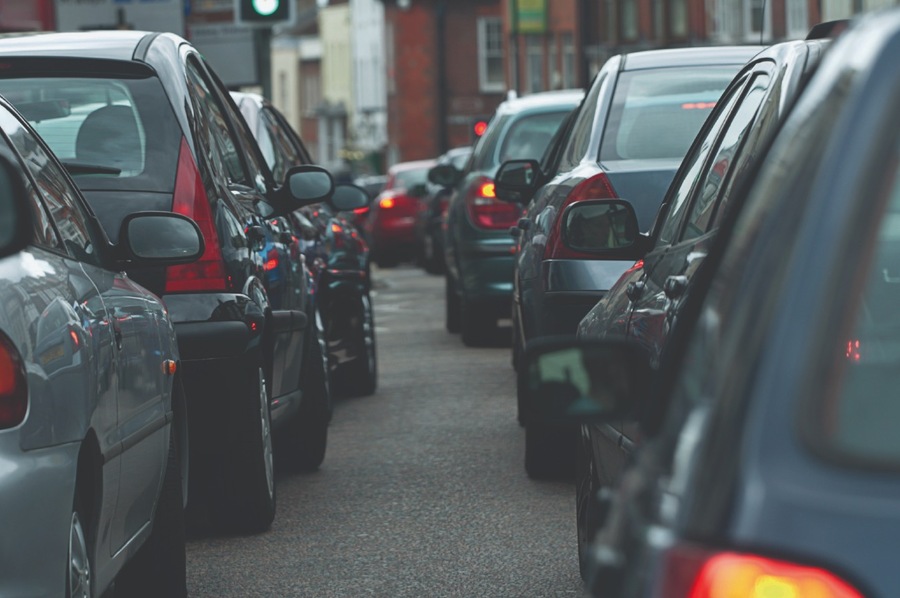Noise pollution, defined as unwanted or harmful sounds, is a significant issue in urban environments. It originates from various sources, including traffic, construction, and industrial activities. In the context of driving, noise pollution poses serious concerns for both health and safety. This article examines the impact of noise pollution on drivers and the role of sound barriers in mitigating these effects, with a focus on Dubai and the UAE.
Sources of Noise Pollution in Vehicles
Noise pollution affecting drivers comes from both external and internal sources. External sources include traffic congestion, construction activities, and urban infrastructure. In densely populated cities like Dubai, heavy traffic and continuous construction contribute significantly to high noise levels. Internal vehicle noise comprises engine and mechanical sounds, in-vehicle entertainment systems, and aerodynamic noise caused by air flowing around the vehicle.
Health Impacts of Noise Pollution on Drivers
Exposure to noise pollution has several adverse effects on physical health. Prolonged exposure to high noise levels can lead to hearing impairment and cardiovascular problems. Noise pollution increases stress levels, which in turn raises the risk of hypertension and heart disease. Additionally, constant noise can distract drivers, increasing the likelihood of accidents.
Mental health is also affected by noise pollution. Drivers exposed to continuous noise may experience elevated stress and anxiety. Noise-induced sleep disturbances can lead to chronic fatigue, affecting overall well-being. Cognitive functions, such as concentration and memory, can be impaired by constant exposure to noise, reducing driving performance and safety.

Safety Implications of Noise Pollution for Drivers
Noise pollution can reduce situational awareness, making it difficult for drivers to hear emergency signals and communicate effectively with passengers. This lack of awareness can delay reaction times in critical situations. Furthermore, constant noise exposure can lead to driver fatigue. Fatigue impairs reaction times, decision-making abilities, and overall alertness, increasing the risk of accidents.
Current State of Noise Pollution in Dubai and the UAE
Dubai and the UAE have seen rapid urbanization and traffic growth, contributing to rising noise levels. According to the Dubai Statistics Center, the number of registered vehicles in Dubai has increased significantly in recent years. High traffic density, combined with ongoing construction projects, exacerbates the noise pollution problem. Public awareness of noise pollution is growing, and government initiatives are being implemented to address this issue.
Mitigation Strategies for Reducing Noise Pollution
Several strategies can mitigate vehicle noise pollution. Advances in vehicle design, such as quieter engine technologies and improved insulation, play a critical role. Regular vehicle maintenance, including checking and replacing worn parts, helps reduce internal noise.
Sound barriers are an effective solution for reducing external noise. These barriers, made from various materials, block and absorb sound waves, reducing noise levels in surrounding areas. In Dubai and the UAE, sound barriers have been implemented along highways and in residential areas to mitigate traffic noise.
Role of Sound Barriers in Enhancing Driver Health and Safety
Sound barriers work by blocking the direct path of sound waves, reducing noise levels that reach the driver. This reduction in noise leads to increased comfort and focus, improving overall driving performance. Over the long term, sound barriers contribute to better health outcomes by reducing the stress and fatigue associated with noise exposure.
For example, the installation of sound barriers along major highways in Dubai has led to noticeable reductions in noise levels in adjacent residential areas. These barriers help create a quieter driving environment, enhancing both health and safety for drivers.

Future Directions and Trends
Emerging technologies continue to advance vehicle noise reduction. Innovations in materials and designs aim to create quieter vehicles, further mitigating noise pollution. Research and development in automotive acoustics focus on reducing internal and external noise through improved engineering solutions.
Policy and regulatory developments will also play a crucial role. Anticipated changes in noise regulation policies in Dubai and the UAE will reflect global trends and best practices. Strengthening regulations and ensuring compliance will be essential in managing noise pollution as urbanization continues.
Conclusion
Noise pollution poses significant health and safety risks for drivers, particularly in rapidly urbanizing regions like Dubai and the UAE. Mitigation strategies, including technological advancements, regular vehicle maintenance, and the use of sound barriers, are essential in addressing this issue. Continued efforts in research, public engagement, and policy development will be critical in creating a quieter and safer driving environment. For more information on noise regulations and initiatives, visit the Dubai Municipality official website.
“Everyone has to find what is right for them, and it is different for everyone. Eating for me is how you proclaim your beliefs three times a day. That is why all religions have rules about eating. Three times a day, I remind myself that I value life and do not want to cause pain to or kill other living beings. That is why I eat the way I do.” -Natalie Portman
